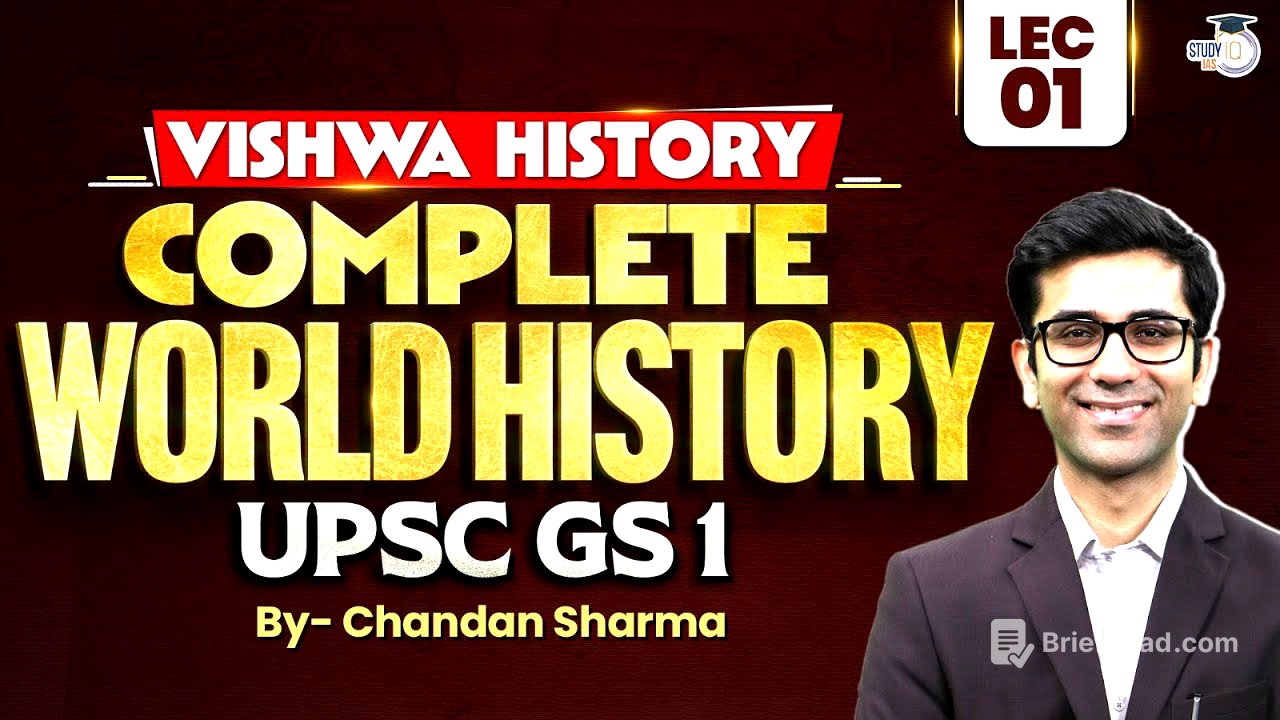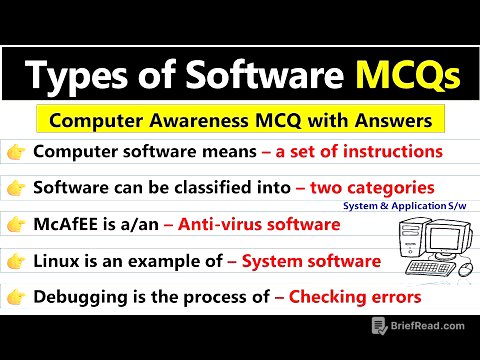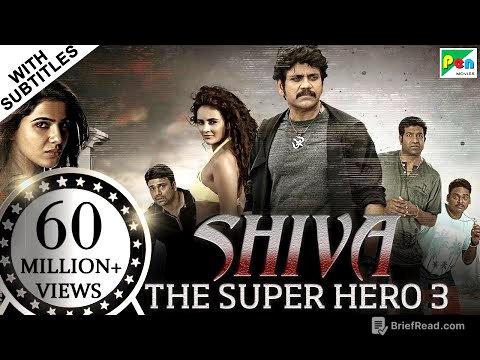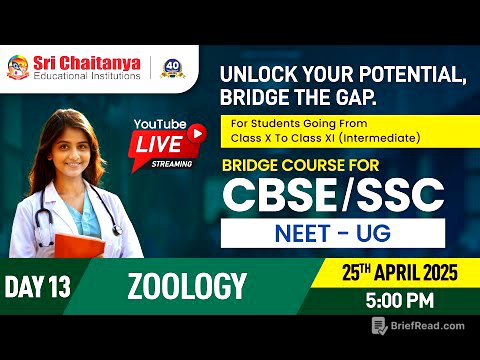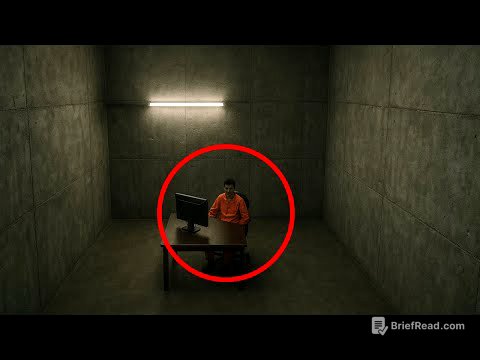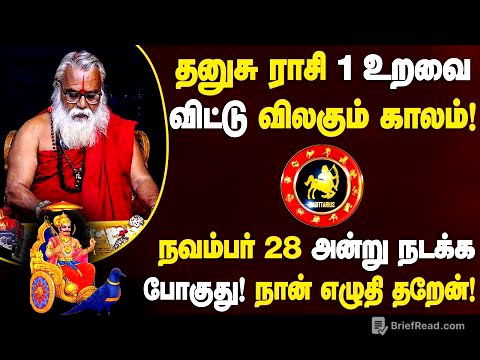TLDR;
Alright, so this video is basically an intro to the World History series for UPSC, where Chandan Sharma sir talks about how to approach the subject. Key points include:
- World History is unpredictable in UPSC mains, with marks ranging from 0 to 40.
- The syllabus is vague, needing a structured approach.
- The series will cover topics from the Enlightenment Era to decolonization, with a focus on cause-and-effect relationships and Indian perspectives.
- Primary sources will be Chandan sir's lectures and Tamil Nadu Board's Class 12th History book (Volume 2), which he has shared on his Telegram channel.
Introduction to World History Series [0:22]
Chandan Sharma welcomes everyone to the StudyIQ IAS YouTube channel and introduces the World History series, emphasizing its importance for the UPSC exam. He highlights that while some might think World History isn't crucial, it can significantly impact your score in the mains exam. He encourages viewers to connect with him on Telegram (CS Live Group_UPSC) and Instagram (@hello.chandan.sharma) for useful content and exam-related tips.
Weightage and Syllabus of World History in UPSC [2:08]
Chandan sir explains that World History isn't in prelims but can fetch up to 40 marks in GS Paper 1 in mains. However, it's unpredictable; some years have no questions, while others have substantial weightage. The UPSC syllabus is vague, only mentioning events from the 18th century onwards, including the Industrial Revolution, World Wars, redrawal of national boundaries, colonization, decolonization, and political philosophies like communism, capitalism, and socialism. He points out the syllabus doesn't explicitly mention the French Revolution, American Revolution, Renaissance, or Reformation, even though previous year papers have questions related to these topics.
Challenges and Importance of World History [7:30]
Chandan sir discusses the challenge of the UPSC syllabus being a bit misleading, as it starts with the Industrial Revolution but questions often cover earlier events like the French Revolution. He stresses that World History can be a bulky component for mains and shouldn't be taken lightly, as every mark counts. He mentions that coaching centers often keep this component for the end, which sometimes never comes. This series aims to provide a structured approach to studying World History.
Structured Approach to Studying World History [9:18]
Chandan sir outlines a structured approach, dividing World History into approximately 15 parts, each requiring about two lectures. The series will start with the Enlightenment Era, covering philosophers like Voltaire and Rousseau, and touching upon the Renaissance and Reformation. This will lead to discussions on liberty, democracy, secularism, and the impact on the American and French Revolutions.
Key Revolutions and Their Impact [10:37]
The discussion moves to the American Revolution, highlighting how the ideas of liberty and democracy were implemented in America, influencing Europe. The French Revolution will be studied holistically, including its characteristics, outcomes, and the rise and fall of Napoleon. The series will also cover the scientific inquiry that led to the Industrial Revolution, which brought sudden changes and transformed lifestyles. Chandan sir uses the example of Jio's data revolution in India to explain the concept of revolution.
Industrial Revolution and Unification Movements [17:09]
Chandan sir explains the causes and impact of the Industrial Revolution, particularly why it started in England. The series will also cover unification movements in Italy and Germany, the decline of the Ottoman Empire, and the Austro-Hungarian Empire. The focus will be on events that changed the direction of the world.
Imperialism, World Wars, and Cold War [18:25]
The discussion includes imperialism, colonization, the scramble for Africa, and Asia under European control. World War I will be covered, including its causes, alliances, major battles, the Treaty of Versailles, and the League of Nations. The Russian Revolution, which occurred during World War I, will also be discussed. The inter-war period, the rise of fascism and Nazism, the Great Depression, World War II, and the Cold War era will also be covered.
Decolonization, Political Ideologies, and Contemporary World Politics [19:27]
Chandan sir touches upon decolonization, with examples from India, Africa, and Vietnam. The redrawing of national boundaries, the Israel-Palestine issue, the disintegration of the USSR, and the Balkan crisis will be examined. Political ideologies like liberalism, conservatism, socialism, communism, and anarchism will be studied, along with their impact on the rise of the USA and China, linking it to contemporary world politics.
Sources for World History Preparation [20:56]
Chandan sir emphasizes that the primary sources for this series will be his lectures and PPTs. For additional reading, he recommends the Class 12th, Volume 2, Tamil Nadu Board history book, which he has shared on his Telegram channel (CS Live Group_UPSC). He advises against getting distracted and stresses the importance of being serious about UPSC preparation.
Tamil Nadu Board History Book and New NCERT [24:09]
Chandan sir specifies that in the Tamil Nadu Board book, only selective topics from the first chapter ("Modern World - Age of Reason") need to be studied, as it mainly deals with post-independence India. He recommends starting with Unit 11, which covers the Renaissance and Reformation, American and French Revolutions, imperialism, colonialism, and World Wars. He finds the new NCERT books too diffused and lacking structure, suggesting they be used selectively.
Prelims and Mains Approaches [28:15]
Chandan sir differentiates between the prelims and mains approaches. For prelims, focus should be on concepts, important terms, and facts. For mains, the focus should be on answer writing. He emphasizes cause-and-effect chains, immediate and long-term causes, timelines, and consequences. Answers should be structured into social, economic, political, and global aspects.
Key Aspects for Mains Answer Writing [30:55]
Chandan sir highlights the importance of flow charts for revision and emphasizes the impact of international events on Indian thinkers. He points out that mains expects an Indian perspective, with examples of how international events impacted India. He advises simplifying things and mentions his own GS score to emphasize that UPSC seeks simplified understanding.
Comparative Analysis and Thinkers [34:15]
The lecture touches upon comparative analysis of similar events like German and Italian unification, and French and American Revolutions, highlighting similarities and differences. The series will also cover thinkers like Marx, Rousseau, and Locke, condensing their philosophies into concise summaries for answer writing.
Flow Charts, Treaties, and Timeline Twists [35:36]
Chandan sir discusses the use of flow charts for events and the importance of critical treaties and their provisions. He mentions that UPSC loves timeline twists, asking how one event led to another. He reiterates that prelims and mains are entirely different exams.
Recommendation for 2026 Aspirants and P to I Advance Batch [36:40]
Chandan sir recommends this series to students who didn't clear prelims 2025, so they can prepare World History for 2026. He also suggests enrolling in the P to I Advance Batch to maintain momentum and prepare for mains. He explains that the time between June and January is ideal for mains-oriented preparation. He provides a code (CSLIVE) for a discount on the batch.
Course Benefits and Conclusion [39:36]
Chandan sir explains that the P to I Advance Batch will revise the entire syllabus, focusing on relevant components. He shares that he will post the brochure for the batch on Telegram. He concludes by announcing that the World History class will start on Thursday and asks students to study Chapter 11 from the Tamil Nadu board book before the next class.
